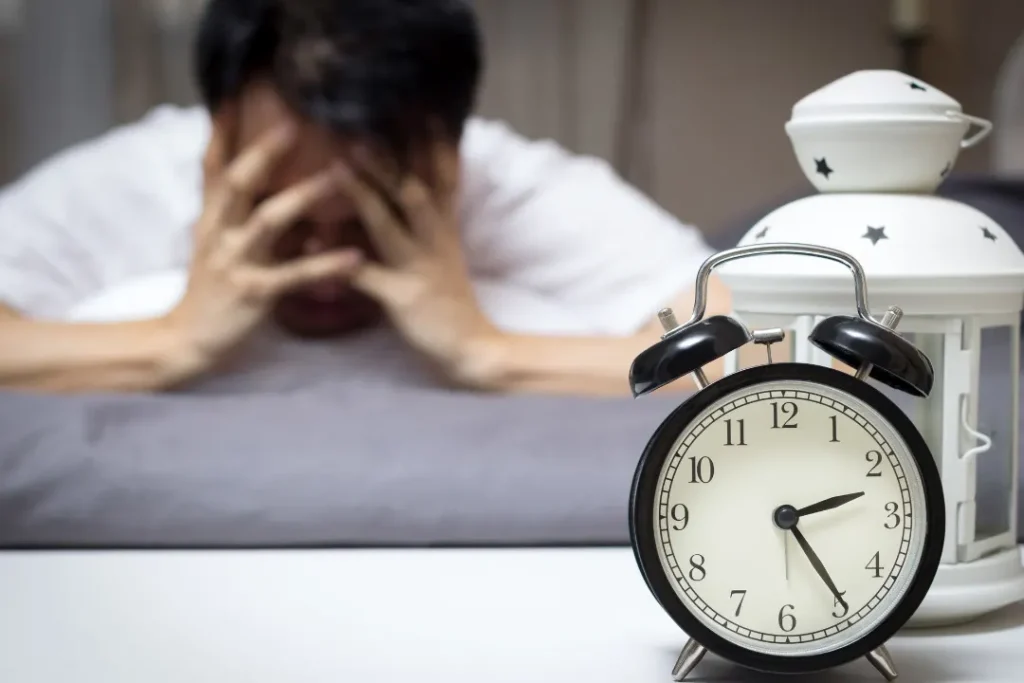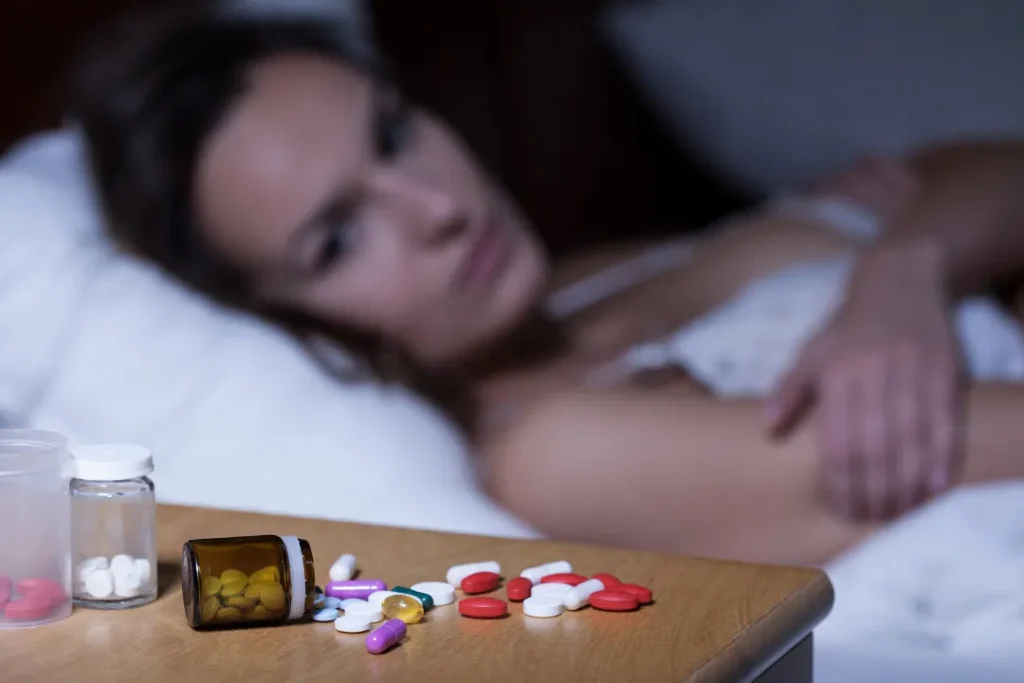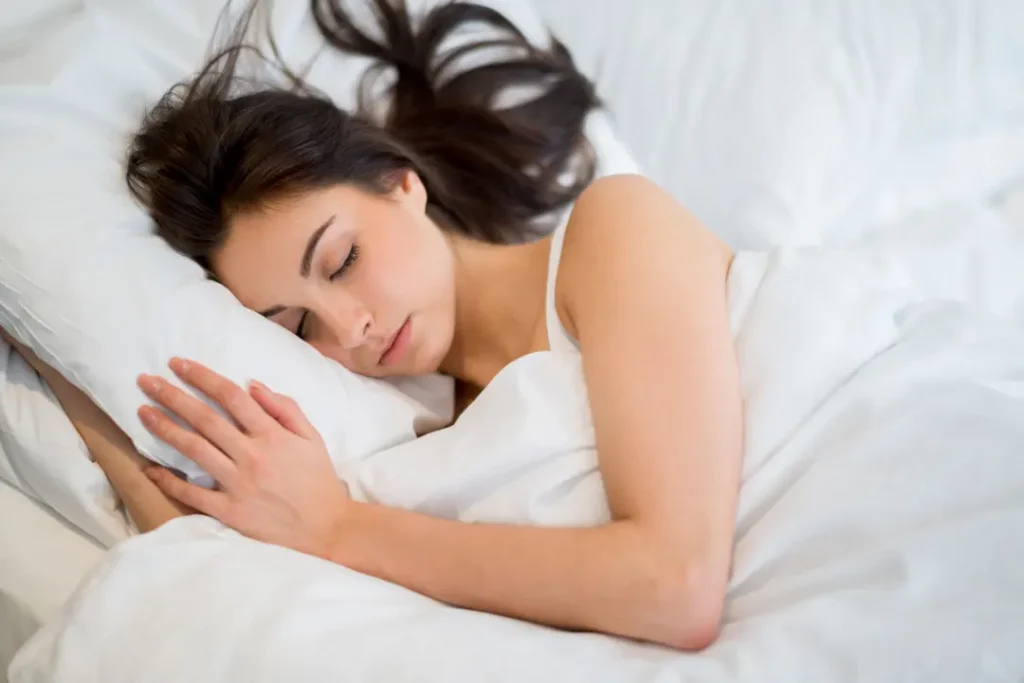New York, NY, April 7 2023 –BRAINLUXURY™’s flagship product, DELTA BrainLuxury™, has been awarded Optimal Health News’ highest honors for its top-of-the-line melatonin-free sleep supplement in the market for melatonin alternatives. Increasing concerns about the dangers associated with melatonin supplements and sleep aids have made it important for consumers to seek melatonin alternatives that use different ingredients and work through different mechanisms in order to support the body’s natural sleep cycle.
Though melatonin products dominate the sleep supplement market, they are beginning to be challenged by melatonin alternatives such as DELTA BrainLuxury™. In a formulation unique among melatonin alternatives, it features superior bioavailability and supports deep, natural sleep by helping the brain to regulate its own sleep hormones, without the pronounced side effects common to melatonin supplements. This is especially important in light of the rising incidence of melatonin poisoning, especially among children and the elderly.
Melatonin continues to dominate the sleep aid market, with sales increasing by 150% between 2016 and 2020. The pandemic increased those numbers even more. Last year, the National Institutes of Health reported that 3.1 million Americans used melatonin supplements to fall asleep, In addition, the melatonin market size was estimated to be worth USD 1.4 billion in 2021 and is forecasted to reach USD 4.7 billion by 2028 with a compound annual growth rate of 18.1%.
The global sleep aids market size was valued at $74.3 billion in 2022. Increasing at a compound annual growth rate of 5.95%; it is projected to reach $124.97 billion by 2030. A number of factors are expected to drive the development of the sleeping aids industry, including: increasing rates of stress-driven insomnia around the globe and growing awareness among consumers of the adverse effects of sleeping disorders; a surge in the geriatric and obese populations, leading to an increase in the cases of sleep disturbances; use of sleep-promoting medication in children and adolescents due to school hours being extended.

The availability of online information about sleep aids and the rise in disposable income are expected to create additional opportunities in the sleeping aids industry as well.
Perhaps most importantly – a recent survey showed a growing demand for melatonin alternatives. 73% of consumers say they want to try new products and services to improve sleep quality – leaving BRAINLUXURY™ uniquely positioned for substantial growth.
Melatonin Alternatives for Safer Sleep: DELTA BrainLuxury™ Offers a Natural Sleep Support Supplement That Avoids the Dangers of Melatonin’s Side Effects and Overdose Potential is an original (OptimalHealthNews) article.
A peaceful night’s sleep is a precious commodity now more than ever. The CDC has called sleep deprivation a health epidemic: the American Sleep Association reports that 30 percent of American adults are experiencing insomnia. Another 37.5 percent don’t get more than seven hours of sleep per night, out of the eight or nine recommended. No wonder, then, that the National Sleep Foundation reports that nearly half of Americans feel that poor or inadequate sleep affects their daily activities at least once per week. No wonder, too, that the sleep-deprived are reaching for bottles of relief like never before.
A large proportion of those bottles contain melatonin. Also called “the sleep hormone,” melatonin is the main neurohormone secreted by the brain’s pineal gland, which produces melatonin in response to darkness. Derived from tryptophan, melatonin runs the body’s 24-hour internal clock and controls the sleep-wake cycle, helping to promote sleep while inhibiting wake-promoting signals.
It’s no mystery as to why melatonin as a sleep supplement is so popular – it works – or does it? Melatonin supplements can be helpful in some specific cases, such as coping with jet lag or treating circadian rhythm sleep disorders, but sleep medicine doctors don’t recommend taking the supplement for run-of-the-mill sleep difficulties or insomnia.
Consumer Reports found that melatonin supplements helped users fall asleep “only 7 minutes faster and sleep 8 minutes longer on average,” according to a 2013 analysis. The rest may be hype. Michael Grandner, a sleep researcher at the University of Arizona says “Unfortunately, it’s acquired a reputation as a safe, ‘natural,’ over-the-counter quick fix for sleep that will be hard to shake.”
Despite melatonin’s sometime effectiveness, there’s a catch: increasing numbers of melatonin users experience what’s known as a “melatonin hangover.” A common side effect of melatonin, it brings daytime grogginess, headaches, and oftentimes, nausea. The hangover typically arises from taking melatonin too late at night, because people taking melatonin often expect the drug to work more like a sleeping pill than a sleep aid. “The hormone is for the timing of sleep,” says Christopher Winter, M.D., of Charlottesville Neurology and Sleep Medicine “It’s not a sedative. It’s not meant to knock someone out.”

Many people consider melatonin ‘natural’ since it is a supplement, and don’t worry much about taking even very high doses. The proper dosage, according to a study from the Massachusetts Institute of Technology, is 0.3 milligrams, — the amount that our brains naturally release over the course of each night. However, many pills are sold as 3 grams or more — an enormous excess. “Ninety percent of the melatonin that’s sold currently is sold in an overdosage format,” says sleep expert Dr. Michael Breus.
“If you look around, almost nobody sells it at 0.3 milligrams; they sell it at three, five, even 10 milligrams,” Breus says. “And that’s a problem because you can indeed get melatonin “hangovers,” with too much of the substance in your body at one time. Part of the problem is that it’s easy to assume that melatonin should just be taken in whatever dosage is readily available.”
Also complicating the issue is the variability of dosages among brands. Research has found that 71 percent of melatonin supplements did not meet the dosage claims on the label. There is now concern that the amount of melatonin in over-the-counter bottles may exceed what the label displays by up to 478%.
This raises the potential for melatonin overdose, which has been increasing in recent years. Symptoms include excessive sleepiness, vomiting, and trouble breathing, along with potential blood pressure changes, gastrointestinal problems, changes in other hormone levels, and mood disturbances.
Melatonin poisoning among children has also increased over the past decade — especially during the onset of the pandemic. A study of poison control calls in the U.S. found the overall number of melatonin poisoning–related calls increased six times from 2012 to 2021. In 2021, the US Poison Control Center recorded over 53,000 calls concerning children consuming too much melatonin. Over the study time, more kids needed hospitalization for overdose consequences, including 4,000 teens and alarming numbers of children five years old and younger. Several needed a respirator and two children died.
Symptoms of melatonin poisoning in children include excessive sleepiness, nausea, vomiting, stomach pain, and labored breathing.

Little wonder, then that more and more consumers are seeking melatonin alternatives. One leading option is DELTA BrainLuxury™
Named after delta brain waves that are present during deep sleep, DELTA BrainLuxury™ helps customers fall asleep faster, sleep more deeply, and wake up feeling well-rested and refreshed.
Its uniquely bioavailable liquid formula provides a patent-pending combination of tryptophan, glycine, essential fatty acids, vitamins, and organic citrus juices, together supplying the pre-cursors to melatonin and serotonin.
Established in 2021, New York-based BRAINLUXURY™ was co-founded by Dr. Axel Bouchon, a biochemist and serial entrepreneur in the biotech industry. Bouchon says traditional sleep aids hurt rather than help the body’s natural sleep rhythms.
“If you force your body to sleep, it is very difficult to get into the very critical deep sleep phase. So, giving someone something that just knocks them out actually disrupts the quality of sleep. Sleeping pills or even melatonin and GABA are active molecules that can derail the regulation of your sleep entirely, in particular, if wrongly dosed.”

Bouchon says his team took an entirely different approach by creating a sleep support supplement that allows the body itself to determine how much melatonin and serotonin are manufactured and when they are released.
“That is the difference between DELTA BRAINLUXURY™ compared to all other sleeping agents: we accept that only your brain knows what you really need. Therefore, we provide all the natural ingredients to your brain so it can make the optimal decision for you.”
A unique feature of DELTA BRAINLUXURY™’s formula is its inclusion of omega and other fatty acids from algae, flaxseed, and coconut oils. Observing that brain tissue is mostly fat, BRAINLUXURY™’s founders have created a sleep support supplement delivered in vials that contain a combination of fatty acids – nutrients that they say are sometimes lacking in modern diets.
According to Bouchon, “The brain is 70% fat, so you obviously need oil to feed such a fatty organ.” The formula’s unique combination of omega-3 oils, Bouchon says, “open a much faster delivery to your brain.” The result, Bouchon says, is a sleep support supplement that works naturally with the brain’s own biochemistry.
Bouchon cautions consumers against trying to force themselves to sleep with artificial doses of melatonin and other sleep aids.
“Don’t touch melatonin,” says Bouchon, “use your own. There is a natural alternative – and it is us.”
BRAINLUXURY™ also produces a daytime accompaniment toDELTA BRAINLUXURY™ called GAMMA BRAINLUXURY™, designed to support focus, energy, and calm. Both products are available to consumers directly online.

About
Optimal Health News is a continuously-updated collection of curated content and the latest health-related news for the education and benefit of its readers.
Important Note: The information contained in this article (BrainLuxury™ Offers a Natural Sleep Support Supplement That Avoids the Dangers of Melatonin’s Side Effects and Overdose Potential) is for general informational purposes only, and should not be construed as health or medical advice, nor is it intended to diagnose, prevent, treat, or cure any disease or health condition. Before embarking on any diet, fitness regimen, or program of nutritional supplementation, it is advisable to consult your healthcare professional in order to determine its safety and probable efficacy in terms of your individual state of health.
Regarding Nutritional Supplements Or Other Non-Prescription Health
Products: If any nutritional supplements or other non-prescription health products are mentioned in the foregoing article, any claims or statements made about them have not been evaluated by the U.S. Food and Drug Administration, and such nutritional supplements or other health products are not intended to diagnose, treat, cure, or prevent any disease.
